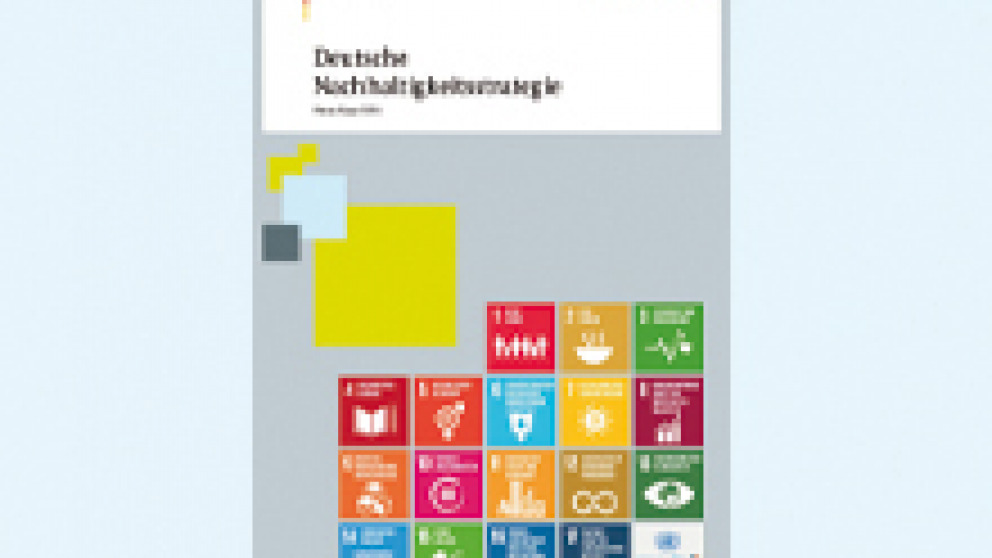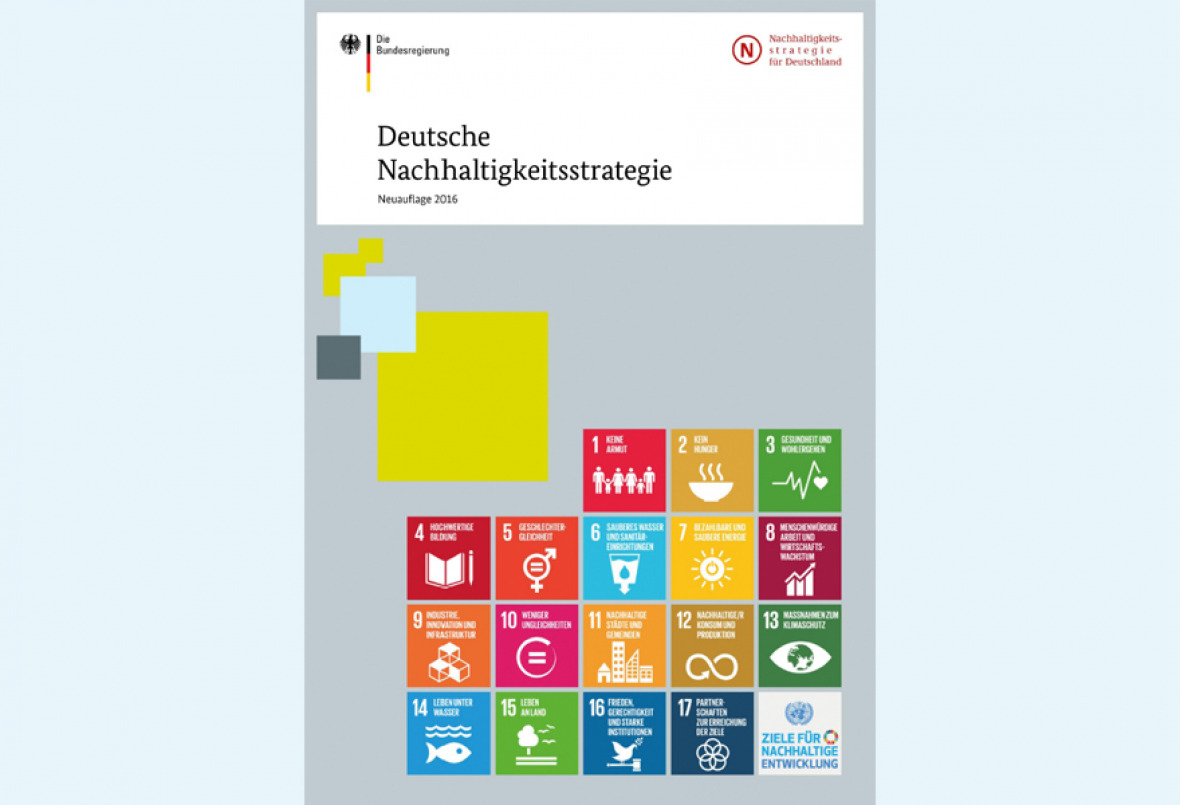Headline:
IASS Welcomes German Sustainability Strategy and Supports New SDG Science Platform

The IASS welcomes the Federal Cabinet’s adoption of the new National Sustainability Strategy (2016) on 11 January 2017. The strategy’s alignment with the United Nations Sustainable Development Goals (SDGs) and its intention to foster greater collaboration within Federal Government and between policymakers, science, and society are particularly positive developments. “The strategy adopts a broad and forward-looking approach that supports the implementation of the 2030 Agenda in, with, and through Germany. The achievement of these global goals in Germany will become the touchstone of our efforts. At the same time, we must ensure that consideration is always given to the international implications of national implementation strategies. The question of how these challenges can best be addressed will accompany us through to 2030,” explained IASS Director Patrizia Nanz.

Science platform established for UN Sustainable Development Goals
The 257-page document represents the most comprehensive update to the German Sustainability Strategy since its adoption in 2002. In July 2016, the IASS issued a statement in response to a draft of the strategy, in which the Institute highlighted both the potential synergies and conflicts inherent in the 2030 Agenda’s comprehensive catalogue of goals. In light of this, there is a critical role for science to play in ensuring the Agenda’s efficient implementation.
Reflecting this complexity, the National Sustainability Strategy notes: “The social, ecological, and economic challenges identified in the 2030 Agenda cannot be addressed without the support of science.” A Science Platform for the Implementation of the Sustainable Development Goals/Sustainability Policy (or SDG Science Platform) is currently being established to coordinate research around these issues, which will bring together the IASS and a number of partners, including SDSN Germany and DKN Future Earth.
Strengthen dialogue between science, policymakers, and society
The SDG Science Platform will contribute to the steering, dialogue, and implementation processes of the 2030 Agenda in Germany and will work closely with actors from across science, society, and policymaking to identify progress and deficits in the Agenda’s implementation. Various social actors will contribute to the work of the SDG Science Platform. The IASS is expected to host the new platform’s coordination office, providing support to the full spectrum of research efforts around the implementation of the National Sustainability Strategy.
The Institute will also continue to contribute to the implementation process through its own research activities. Ocean sustainability, which is addressed in the 2030 Agenda through a stand-alone goal (SDG 14), forms a particular focus of this work. The National Sustainability Strategy contributes to efforts to safeguard marine sustainability within the framework of the Partnership for Regional Ocean Governance (PROG) – an initiative spearheaded by the IASS, the United Nations Environment Programme (UNEP) and the Paris-based Institute for Sustainable Development and International Relations (IDDRI), with the support of IASS founding director, Klaus Töpfer. The programme, which is mentioned in the strategy, aims to “dismantle structural barriers to the integrated management of marine resources”. Its key areas of activity include the implementation of the Goal for the Oceans (SDG 14) and the conservation and sustainable use of marine biodiversity in areas beyond national jurisdiction.
Citizen participation supports transformation towards sustainability
IASS Scientific Director Patrizia Nanz is looking forward to the launch of the SDG Science Platform several weeks from now; as a political scientist, she will contribute to the platform’s work through her expertise on citizen participation. “It is more important than ever that we come to understand that people are not merely the passive targets of sustainability policy – rather, they take an active role in shaping our environment and we must empower them accordingly. This is particularly crucial in light of current populist tendencies and trends, which hamper the adoption of forward-looking perspectives,” said Nanz.
